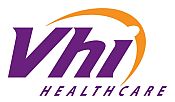Guidelines on Complementary Therapies
Introduction
More people now choose to use complementary therapy when managing their health and well being. There are a wide variety of complementary therapies available. The level of qualification and length of training can vary among practitioners. Because of this, it is important to be sure that you make the right choice.
Seeing a complementary practitioner
The first time you visit a complementary practitioner you will be asked about your medical history. This includes details about:
- any illness or medical conditions you have now or have had in the past,
- any treatment you have had for these illnesses or conditions,
- any medications you are taking – prescribed by your doctor or ones recommended by another complementary practitioner or that you use yourself,
- if you are pregnant.
If this is not your first visit and there have been any changes to the information you gave on your first visit – tell your practitioner. Your practitioner needs to know thie information to make informed and safe decisions about your treatment.
Your practitioner will tell you to see doctor if they think you have a condition that needs medical treatment. He/she will also tell you when they cannot help you and refer you to a more appropriate practitioner.
Good complementary practitioners will not:
- claim that they can cure a specific illness or condition,
- tell you to stop seeing your doctor or another complementary practitioner,
- tell you to stop taking any medication prescribed by your doctor.
All complementary therapy services must meet the requirements of consumer legislation, which is enforced by the Office of the Director of Consumer Affairs.
Questions you should ask your practitioner
Always ask about the treatment being recommended and how it might react with other treatment or medication. Keep on asking if you don’t understand the answers.
How long the treatment will last and what it will be the cost. Beware of practitioners who ask for very high fees or pre-payment of fees. If the practitioner is a member of a professional association you should contact the association for advice on average fees.
Always ask about the qualifications your practitioner holds and how long they have trained. Each individual practitioner is responsible for ensuring that he/she is trained and qualified to the level required to work safely within their area of competence. Remember that the level of qualification and length of training can vary among complementary practitioners.
Ask if he/she holds professional indemnity insurance.
Ask if he/she is part of a professional association, if that association is affiliated to a federation and if those organisations have a website.
Important information about medicines and other treatments
You should not change or stop taking prescribed medicines without talking to your doctor. These medicines have been prescribed for you for a reason. To work properly and safely, you need to take them as prescribed by your doctor.
Remember herbal products, supplements and essential oils can interact with other medicines. It is important to keep your doctor and complementary practitioner informed about the different medicines, herbal products or supplements that you are taking. Different treatments can have an effect on each other or can even be dangerous.
Published by: Department of Health and Children (2006) www.dohc.ie
Complementary Therapy Report and Information Leaflet »direct link»


 Our Objectives
Our Objectives CPD Programme
CPD Programme



